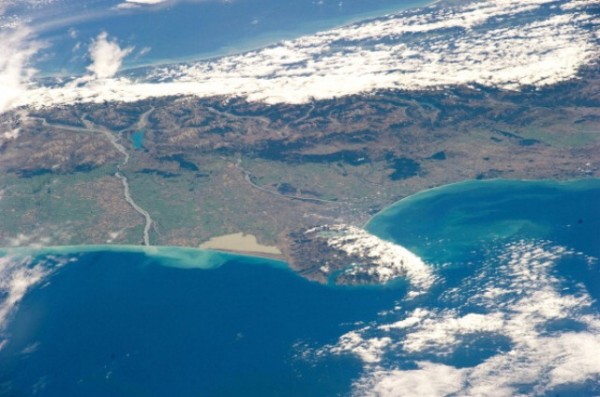This is a great question. What do you think?
If not in 2016, then soon. All data points to reduced carbon levels across all continents. Let the world breath just a little easier and enjoy an amazing milestone and journey to a cleaner, brighter future.
Carbon Dioxide in Earth's Atmosphere Hit Highest-Recorded Level Last Year; Will 2016 be Better?

The earth is showing the effects
of climate change. Recently, the National Oceanic and Atmospheric
Administration (NOAA) announced that the atmosphere's carbon dioxide
levels hit a peak in 2015.
Carbon dioxide levels measured at the Mauna Loa Observatory in Hawaii show that the concentration of gas increased to 3.05 parts per million (ppm) in 2015. It is considered to be the highest year-to-year increase in the last 50 years.
Carbon Dioxide Levels Soaring
The burning of fossil fuels are said to be behind the increase in Earth's temperature. Discovery News notes that since the use of fossil fuels for energy, carbon dioxide levels have risen to more than 400 ppm. Additionally, the increase rate of the gas is 200 times faster than in the previous thousands of years.Last month, the recorded CO2 concentration in the earth's atmosphere is now 402.6 ppm. Before the 1800's, the atmospheric carbon dioxide had an average of 280 ppm.
CO2 Levels Increase Due to Climate Change
The increase is carbon dioxide levels over the past years is due to El Niño and human activities. BBC notes that this has caused forest fires in some parts of the world. The fires, eventually, resulted in more carbon dioxide in the atmosphere.Emissions caused by activities of men such as the burning of fossil fuels like coal, oil and natural gas may be controlled; we can make changes to reduce the increase of greenhouse gases.
"The impact of El Niño on CO2 concentrations is a natural and relatively short-lived phenomenon," Petteri Taalas of the World Meteorological Organization said. "But the main long-term driver is greenhouse gas emissions from human activities. We have the power and responsibility to cut these."
An article posted on the journal Nature reported that with China's trying to cope with air pollution, greenhouse gas emissions are supposedly going down.
"China is trying to deal massively with its air pollution problem," study author Corinne Le Quéré, director of the Tyndall Centre for Climate Change Research at the University of East Anglia in Norwich, said. "And its renewables are growing very fast."
However, Headlines and Global News notes that the reports are unsure that a slight reduction in gas emissions will make a difference in the CO2 levels in the atmosphere.
Will 2016 be better? Part of the answer may be up to us, as there are simple ways for everyone to contribute to help prevent further global warming.

No comments:
Post a Comment